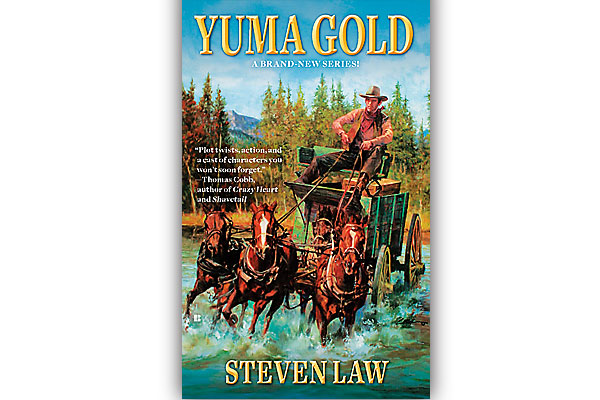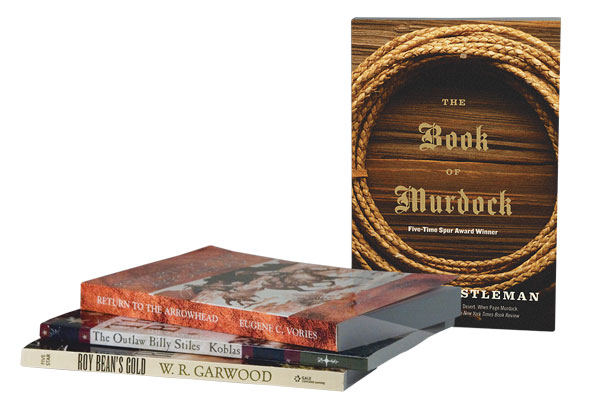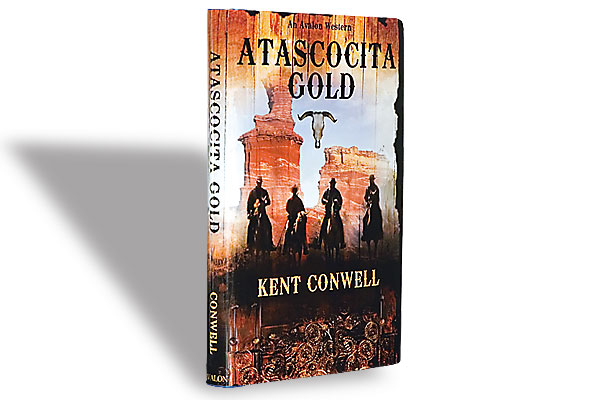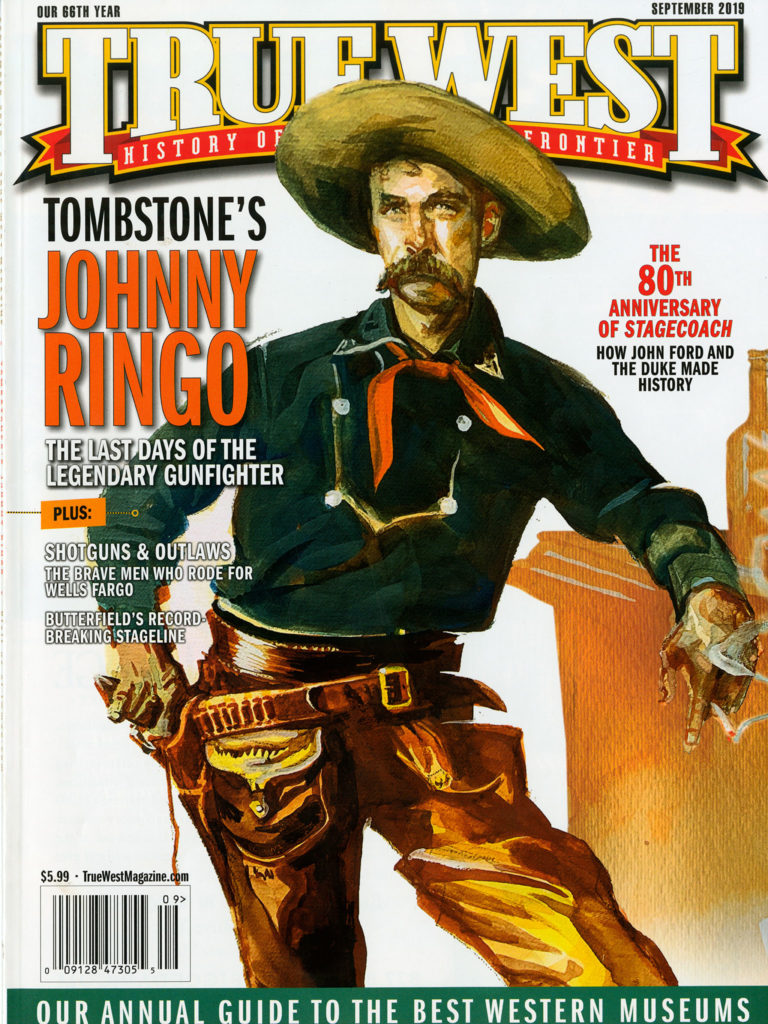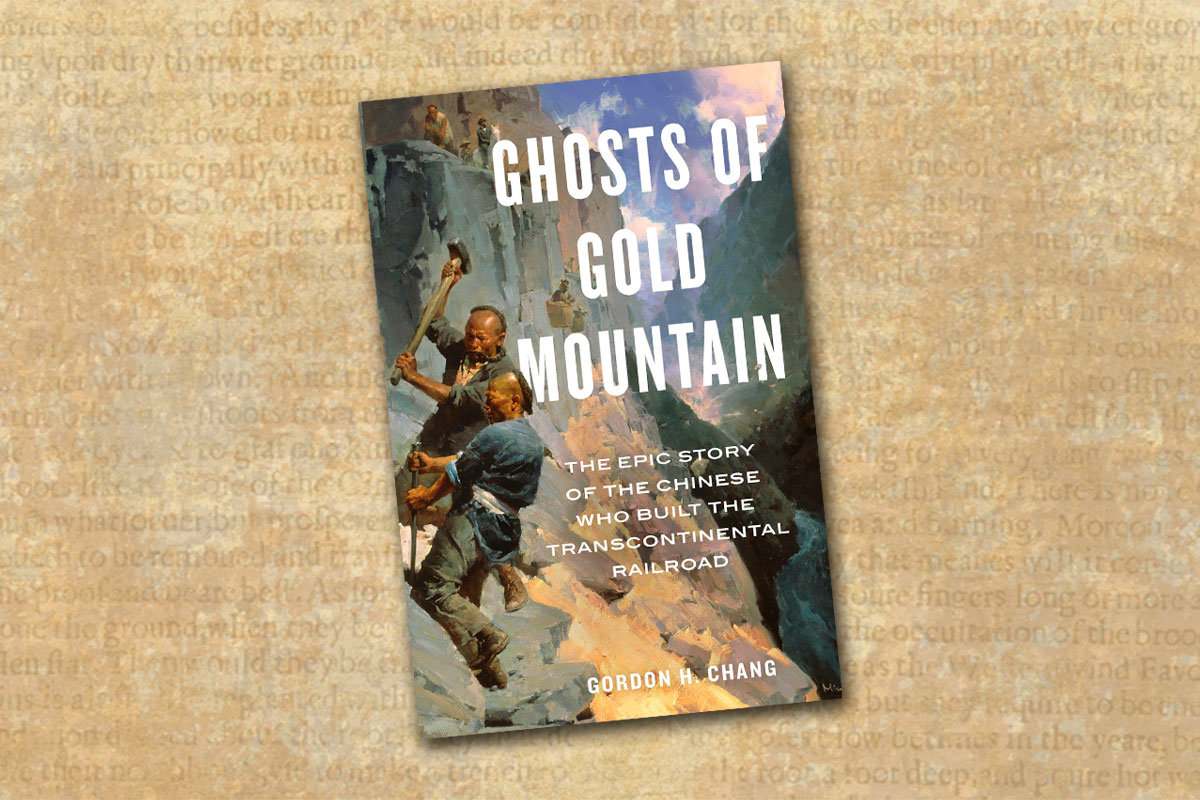
Gordon H. Chang’s Ghosts of Gold Mountain: The Epic Story of the Chinese Who Built the Transcontinental Railroad (Houghton Mifflin Harcourt, $28) is an instant classic and sure to be shortlisted for the Pulitzer Prize in History. Once again, Chang proves he is one of those rare historians publishing today who has the ability to write both academic and popular American history. The author and co-editor of eight previous books on Chinese and Asian-American history, Chang has mined the finest flakes of primary and secondary sources available to write Ghosts of Gold Mountain. His ability to bring voice to the voiceless and forgotten Chinese immigrants places the reader in the midst of the social, racial and economic chaos of California in the 1860s. “Though difficult, a recovery of a lost past is possible if imaginative efforts are made to understand the rich and expansive historical materials that do exist,” Chang states in his Introduction. “Nineteenth-century writers wrote extensively about the Chinese, and their observations can be read in many ways that move the Railroad Chinese from being objects for journalistic observation into the active center of the story.”
Chang’s Ghosts of Gold Mountain is also very personal. “As a Chinese American, I had wanted to know about the Chinese builders of the Transcontinental ever since I was a youngster,” Chang says. “[B]ut it was not until recently that I had the opportunity to engage in a sustained effort to recover their history.” Chang’s lifelong curiosity about the Chinese rail workers led to groundbreaking oral history interviews of rail workers’ descendants and primary research of previously untapped resources in the United States and China. Chang’s Ghosts resets our shared understanding of the continental railroad construction as a purely national story into an international story of nation-building, immigration, labor, race, poverty, industrialization and globalization. In researching and writing such a complex story, Chang has woven a tapestry of American history heretofore unknown, while giving voice to the long-forgotten. As the Stanford professor so eloquently notes, “They are no longer just ‘silent spikes’ or ‘nameless builders’ but are emerging as real historical actors.”
In addition to Ghosts of Gold Mountain, Chang has edited and published, with his co-director Shelley Fisher Fishkin of the Chinese Railroad Workers in North America Project at Stanford, The Chinese and the Iron Road: Building the Transcontinental Railroad (Stanford University, $30). The two volumes will quickly be the foundation for all students and scholars of the Chinese experience in America during the decades leading up to, during and following the completion of the Central Pacific Railroad in May 1869. The strengths of Ghosts of Gold Mountain include the annotated documentation of Chang’s research in his end notes, and his ability to interpret the available information into a dramatic narrative of American history. Anyone who reads Chang’s prose will be moved emotionally and will want to seek deeper answers about our shared past. We eagerly await his follow-up volume on Chinese-American history.
—Stuart Rosebrook

